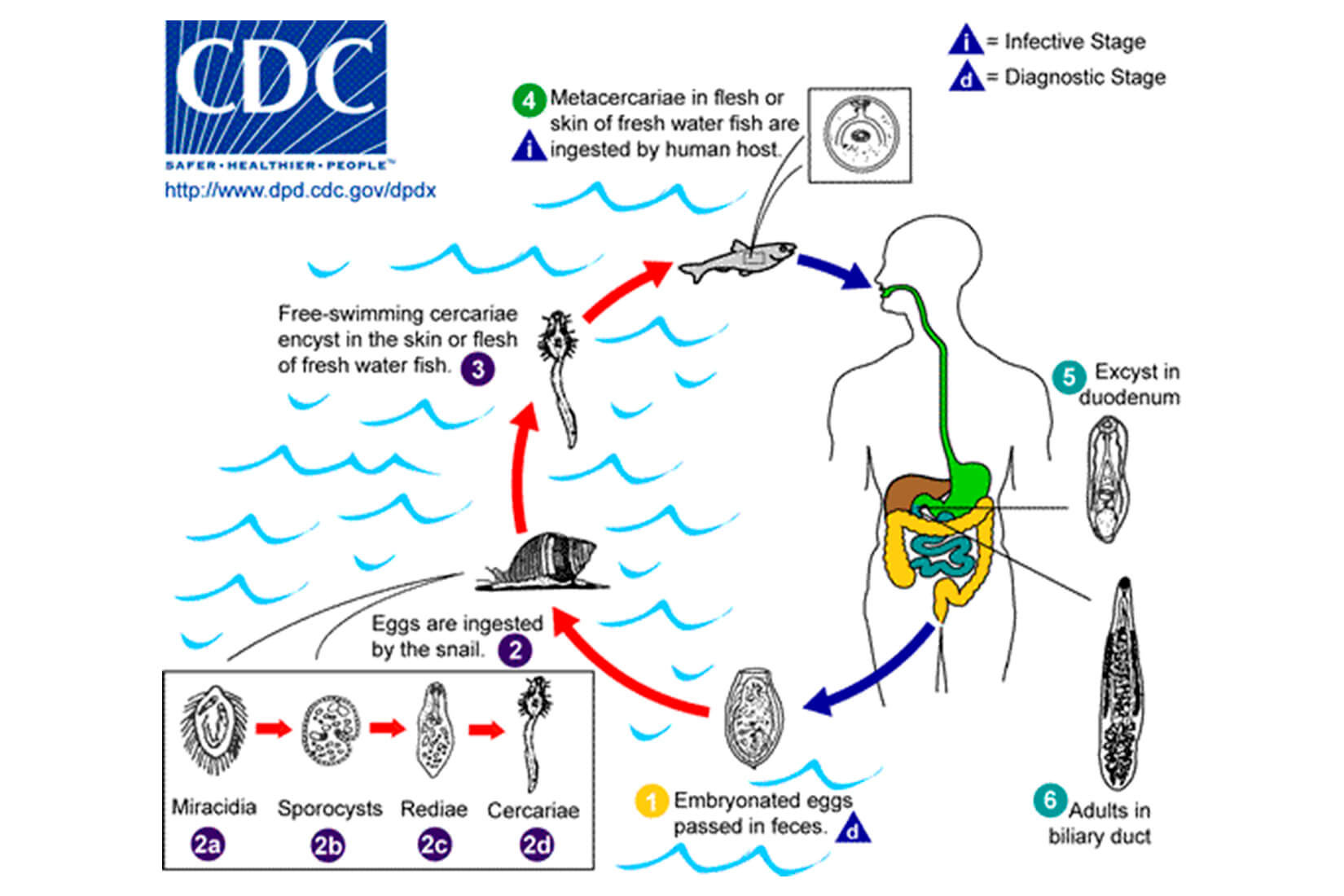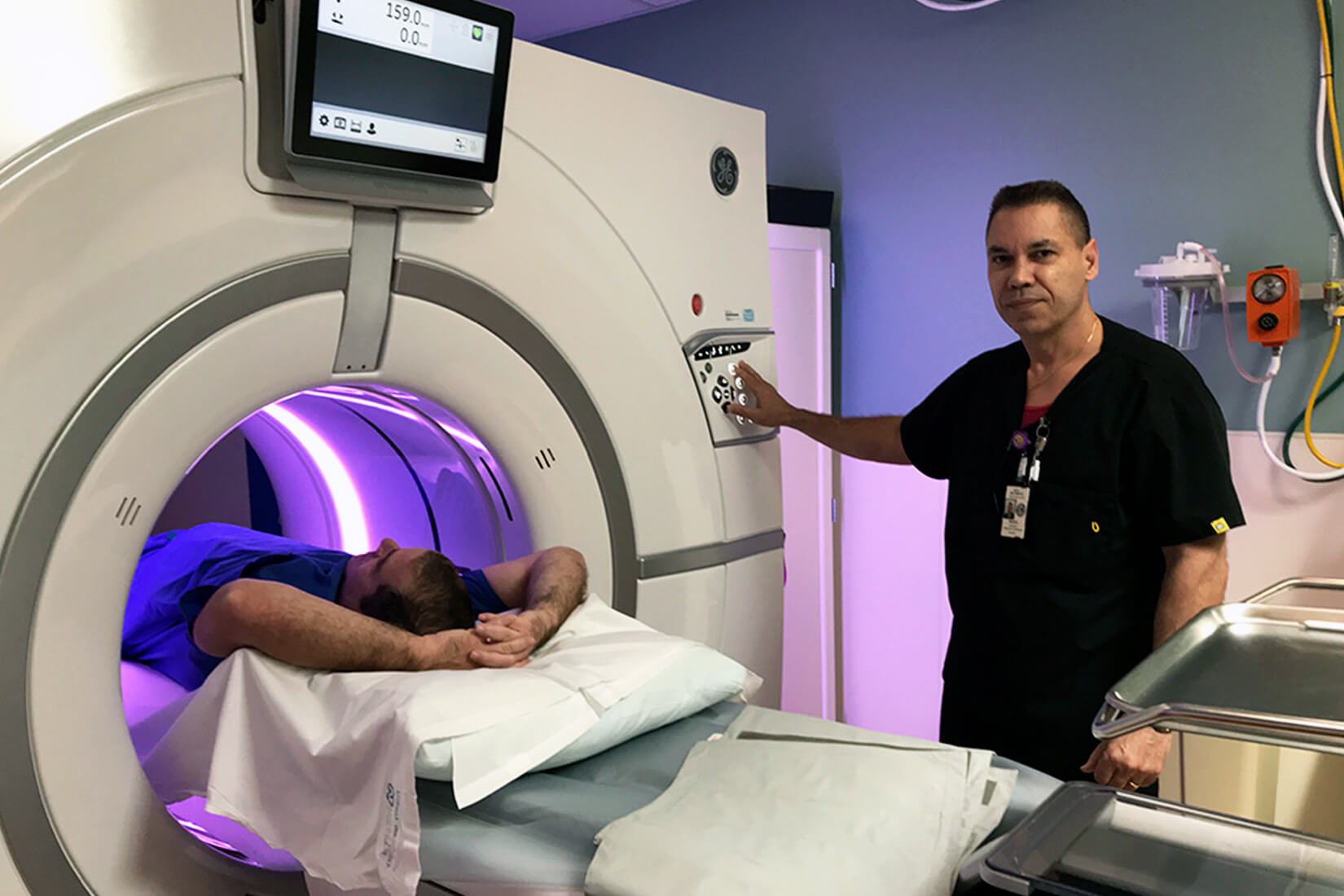Does universal healthcare access provided by the MHS translate into improved patient outcomes for non-small cell lung cancer?
Veterans Study Calls for Better Guidance on Lung Cancer Treatment
With increased imaging now detecting lung cancer nodules in sicker patients, a new report suggested that guidelines should be more directive in how to maximize benefit and minimize harm, while taking into account comorbidities and life expectancy.
VA/National Cancer Institute Partnership Increases Veteran Access to Trials
Thanks to a new partnership between the National Cancer Institute and the VA, veterans with cancer will now have greater access to potentially lifesaving clinical trials.
VA Continues Hepatocellular Screening, but Study Questions the Value
Although a recent study determined that screening veterans with cirrhosis for hepatocellular carcinoma did not reduce the risk of death associated with liver cancer, the VA has no plans to change its screening practices.
Testosterone Therapy Not Linked to Aggressive Prostate Cancer in Veterans
Clinicians prescribing supplemental testosterone in men with low levels always have a nagging concern about the possible link between increasing hormone levels and prostate cancer.
Side-effects Differ Between Radiation Therapies for Prostate Cancer
A recent study compared patient-reported disease-specific functional outcomes after external beam radiation therapy (EBRT) and EBRT combined with low-dose-rate brachytherapy prostate boost (EB-LDR) among men with localized prostate cancer.
Parkinson’s Drug Not Associated With Higher Prostate Cancer Risk
An increased incidence of prostate cancer was observed in Parkinson’s disease (PD) patients treated with entacapone during a pre-approval randomized clinical trial, according to a new study which noted that the relationship had not yet been intensely investigated.
Metformin Promising for Improving Prostate Cancer Survival
Metformin, a commonly used drug for patients with Type 2 diabetes mellitus (DM), has shown promise in helping to treat prostate cancer (PCa), according to a new study.
VA’s Use of Conservative Management for Prostate Cancer Sets Standard
The VA is taking a leading role in use of conservative treatment for veterans diagnosed with non-aggressive prostate cancer.
VA Launches Study to Address Liver Fluke/Bile Duct Cancer Concerns
A recently launched VA study of mortality in Vietnam veterans will examine whether exposure to liver flukes, a parasitic worm, increased the risk of cholangiocarcinoma or bile duct cancer in those veterans.
Incidence of NK/T-cell Lymphoma Rises Significantly in the United States
Limited data are available regarding the incidence, survival patterns, and long-term outcomes of natural killer/T-cell neoplasms in the United States.
Early Therapy Helps Prevent Non-Hodgkin lymphoma, Other AIDS-related Cancer
Prevention of AIDS-defining cancers, such as non-Hodgkin lymphoma, can be helped by early, sustained antiretroviral therapy, which results in long-term viral suppression, a new study found.
Memory Problems Worsen Survival Rates in Older Blood Cancer Patients
About a third of hematologic cancer patients in a recent cohort study screened positive for executive dysfunction, and more than 17% had memory problems.
Suicide risk under-appreciated among advanced lung cancer patients
Much of the focus on suicide at the VA is on recently discharged servicemembers who suffer from conditions such as depression or post-traumatic stress disorder (PTSD).
New Agents Extend Options for Increased Survival in Metastatic Prostate Cancer
Accounting for nearly a third of all cancer diagnoses, prostate cancer is the most frequently diagnosed cancer in the VHA, where past research has suggested that the malignancy is caught earlier than in other healthcare systems.
Personalized Medicine Brightens Outlook for Most Common Kidney Cancer
In the past five years, 10 new system therapies have been approved for renal cell carcinoma (RCC), the most common type of kidney cancer.
Targeted Therapies Transform RCC Treatment Over Last Decade
In the last decade, the development of multiple molecular-targeted therapies has dramatically altered the treatment landscape for advanced renal cell carcinoma (RCC).
Liver Cancer Continues to Rise, Even as VA Declares Victory Over HCV Infection
In March, then-VA Secretary David Shulkin, MD, announced at the annual Wharton Health Care Business Conference that the VA will have eliminated hepatitis C infections among all patients willing and able to be treated by next spring.
Undertreatment of Metastatic Pancreatic Cancer Treatment, Despite Guidelines
While many other cancers have seen dramatic improvement in outcomes in the past 20 years, pancreatic cancer remains one of the deadliest malignancies, regardless of stage at diagnosis, with an overall five-year survival rate of only 8%, according to the American Cancer Society.
Colonoscopy Linked to Lower CRC Mortality in Veterans
Colonoscopy is heavily promoted in the VA healthcare system, and a new study sought to document its effect on colorectal cancer (CRC) mortality rates.
Adjuvant Chemotherapy Improves Survival in Rectal Cancer
The standard of care for locoregionally advanced rectal cancer (LARC) in the United States usually involves adjuvant chemotherapy (AC) following chemoradiation (CRT) and total mesorectal excision (TME).
Weight, Not Diet, Associated With Higher Veteran Mortality From CRC
While suspected, the relationship between dietary and lifestyle risk factors and long-term mortality from colorectal cancer remains poorly understood, according to a new study.
New Therapy Options Recently Approved for Hodgkin’s Lymphoma
While the availability of novel therapies is making the future brighter for non-Hodgkin’s lymphoma (NHL) patients, new treatments also are coming on line for Hodgkin’s lymphoma, which is a hematological cancer distinct from NHL.
CTCL 6-10 Times More Common in Veterans; Agent Orange a Factor New Therapies Raise Optimism about Treatment
Chances are, if you haven’t trained or practiced at the VA, you haven’t seen cutaneous T-cell lymphoma (CTCL), a form of non-Hodgkin lymphoma.
VA Care Not Timely in Early Lung Cancer; But Did It Matter?
Multiple organizations have recommended timely treatment for patients with lung cancer.
Maintenance Rituximab Increases Survival in Follicular Lymphoma
Because several studies have suggested it fails to increase overall survival (OS) despite prolonging progression-free survival (PFS), use of maintenance rituximab (MR) following chemoimmunotherapy in follicular lymphoma (FL) remains controversial.
Cabozantinib May Help Overcome Checkpoint Inhibitor Resistance in GU Cancers
The treatment armamentarium for renal cell carcinoma and other genitourinary cancers continues to expand.
VA Study Indicates That Location Matters in Colon Cancer Survival
More than 95,000 Americans develop colon cancer, making it the third most common cancer in the U.S., excluding skin cancers.
VA Develops, Validates Thromboembolism Risk Tool in Multiple Myeloma
While guidelines for multiple myeloma advise pharmacologic prophylaxis to prevent development of venous thromboembolism (VTE) in high-risk patients, current risk assessment tools differ in the factors considered indicative of high risk and in the patients determined to need preventive anticoagulation.
Vaccine Shows Early Promise in Metastatic Melanoma
Researchers reported positive results today for phase IIb testing of a vaccine for high-risk melanoma patients.











